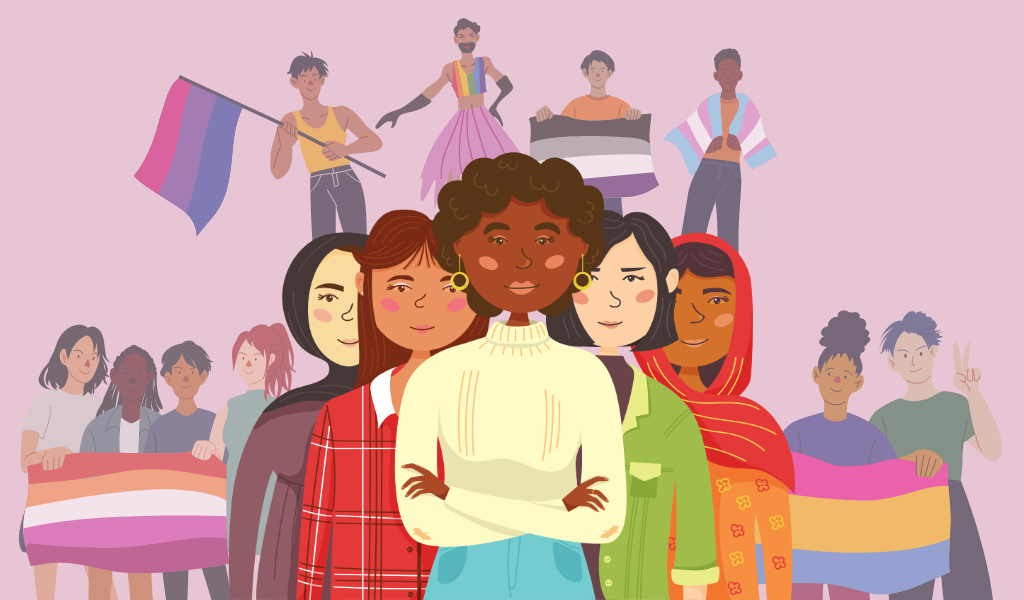From what I have noticed, Romania always seems to be behind on important discussions and topics of conversation compared to the rest of the world. For example, in Romania, in 2018, there was a referendum [i] regarding the definition of family in the Romanian constitution which aimed to prohibit same-sex marriage, while in Canada [ii] same-sex marriage has been legal since 2005. In the UK, women gained the right to vote in 1928 [iii], while in Romania they had to wait another 20 years for that to happen [iv].
In other parts of the world, there are countless articles, studies, and twitter threads talking about the importance of diverse representation in media, whereas in Romania there has been no mention of that. Since I don’t think we should wait another decade for that to happen, let’s start the conversation.
Why does representation even matter?
Representation matters because it shapes the way that society views minorities and how they view themselves [v]. Since Romania is not a remarkably racially [vi] or religiously [vii] diverse country and queer people hide their identity for safety reasons, the average person mostly encounters minorities on-screen. Therefore, the way those characters are portrayed is particularly important.
The way the human brain learns is by looking for patterns [viii]. Accordingly, if all the black people you see in movies are based on stereotypes, your brain will pick up that pattern and adopt the belief that all black people act in that same stereotypical way. This is why accurate, diverse representation is crucial. Not all people belonging to a minority group think or act in the same way.
A study [ix] conducted by the group Children and Screens shows that stereotypical portrayals of minority groups in media can contribute to prejudice and bias and shape relevant political judgments in majority groups. However, examples of positive representation of minority groups were shown to reduce bias against them. “Stories that demonstrate cross-group positive interaction have been shown to lead to diminished prejudice among children.” We can’t ignore the powerful impact that representation has on audiences and we must push for more of it not only on-camera but behind the camera as well. Most directors of popular movies are straight white men. A 2017 study [x] in the US has found that out of 1006 directors of 900 popular movies that came out between 2007 and 2016 only 41 were women, 56 were black or African American and 30 were Asian or Asian American.


Not many writers or directors who are straight can portray a gay character properly. They usually end up being one dimensional, having “being gay” as their only personality trait, which is just not true in real life. This holds true for other minorities when the writers or directors are not a part of that specific minority group.
What comes next?
It’s incredibly important that we’re starting to see the media move to reflect more diverse stories internationally, but Romania has yet to do that. Growing up, I had never seen anyone gay in movies so the only times I heard the word “gay” was when it was used as an insult by my peers. This made it exceedingly difficult for me to accept myself as a gay man. The best thing that ever happened to me was discovering YouTube. On there I found a diverse community of people that I couldn’t find anywhere else. Seeing people of many sexualities, genders and ethnicities on my screen really opened my eyes. They were regular people who weren’t hurting anyone and who were living happy lives being who they are. That helped me on my self-acceptance journey. I don’t know where I would be If I hadn’t found the representation that I desperately needed on YouTube, but I am so glad that I did.
If this type of representation had been around when my parents were younger, my life would be way easier now. If “Liceenii” and other movies would have portrayed a healthy, loving, gay relationship when my mom was watching in high school, I would like to think that more Romanian parents would be accepting of their queer kids. If there had been transgender representation in “Ion” maybe there would be better healthcare available for them now. Unfortunately, that time has passed and all we can do now is push for more diverse representation in Romanian media because it has a powerful impact in shaping society’s views. Who knows, maybe in the future we will be introduced to Celentano’s lesbian cousin, without having her be sexualized or fetishized in any way.
Editor: Raluca Sachelarie
Grafician: Octavian Ionescu
